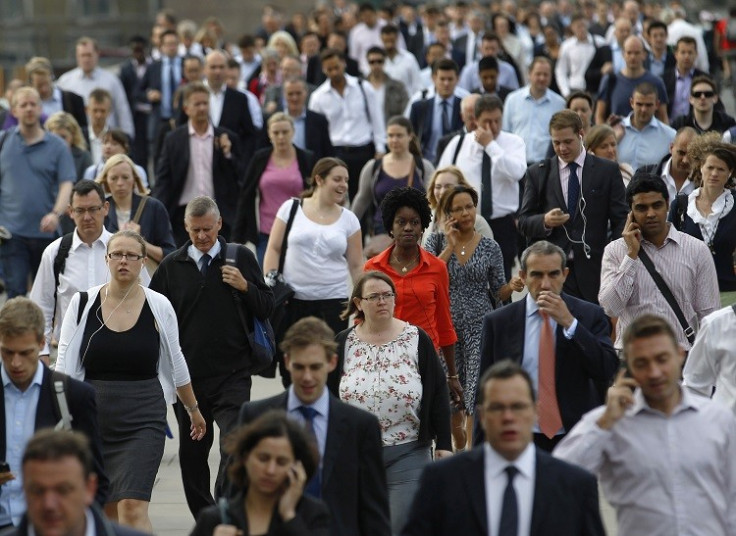UK service sector grows in January but confidence hits three-year low, PMI shows

The UK services sector grew at a faster pace than expected in January thanks to a stronger inflow of new business, while employment in the industry rose at its quickest rate in three months, but confidence fell to a three-year low.
The Markit/CIPS UK Services Purchasing Managers' Index (PMI) grew from 55.5 in December to 55.6 in January, defying expectations for a decline to 55.4, remaining above the 50 threshold that signals growth of activity compared with the previous month.
The slight uptick in the headline index was attributed to a sharp increase in new business, which advanced at their fastest pace since July and marking the 13th consecutive month of growth.
However, declines in the sub-indices tracking confidence over the 12-month outlook and order backlogs meant reasons for optimism were scant, as the former plunged to a three-year low, with sentiment dented by a variety issues.
"Cracks continue to appear in the country's resilience to the various headwinds," said Markit chief economist Chris Williamson,
"Worries about a Chinese 'hard landing', financial market jitters, higher interest rates in the US, more austerity at home and the possibility of 'Brexit' and EU tensions have collectively pushed the business mood in the dominant service sector to its darkest for three years."
The rate of job creation rose from December's five-month low in January, and was strong overall, contributing to an overall decline in outstanding business during the month, only the second contraction in nearly three years.
However, while growth in January was slightly stronger than the long-run survey average, it remained weaker than the strength achieved in 2013 and 2014, when the index recorded readings of 56.9 and 58.2 respectively and of the 56.7 notched in 2015.
"Despite the uptick in growth, the increased uncertainty about the outlook and persistent lack of inflationary pressures means the majority of policymakers will no doubt be more worried about avoiding another downturn than whether the economy needs higher interest rates," Williamson added.
Vicky Redwood, chief UK economist at Capital Economics, said the PMI was consistent on past form with quarterly GDP growth of about 0.6%, a slight improvement on the 0.5% registered last year, but warned the services sector faced uphill challenges over the next 11 months.
"Looking ahead, there are some reasons to be cautious," she said. "In particular, there is clearly some scope for the economy to be hit by uncertainty ahead of the EU referendum, which looks likely to be in June following yesterday's draft deal."
© Copyright IBTimes 2025. All rights reserved.






















